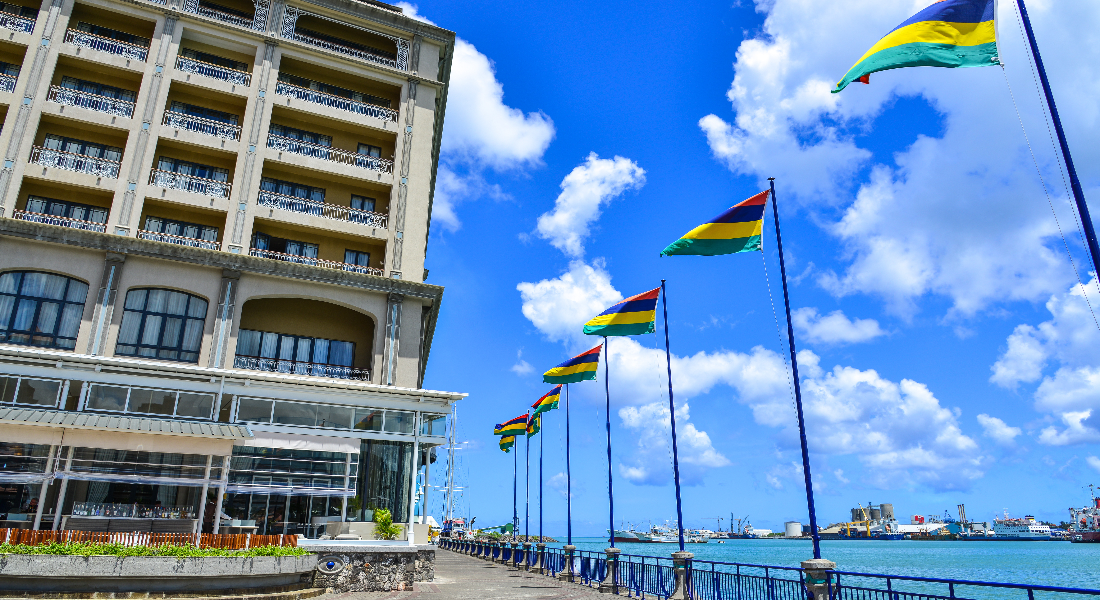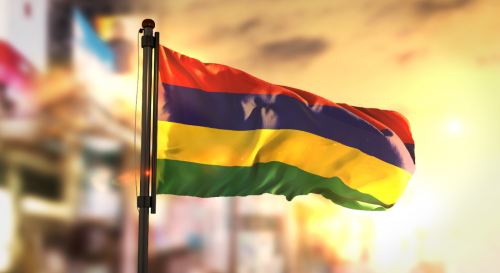
Mauritius: an African success story
On 30 July 2019, the Mauritius Parliament approved and passed the Industrial Property Bill 2019, it was then published in the Government Gazette on 10 August 2019. The bill aims to update and strengthen protection for IP rights, as well as to harmonize the current legislation in order to meet the challenges of the globalized industry.
The Mauritian economy is ranked by the World Economic Forum as the most competitive in sub-Saharan Africa. The country has enjoyed average economic growth of 3% per year from 2015 to 2019, mainly driven by financial services, retail and wholesale trade, and information and communications (ICT) technology. The gross domestic product trended upwards, reaching an estimated $10,200 in 2019 – the third highest in Africa after Equatorial Guinea and Seychelles, according to the African Development Bank Group.
The country has successfully made the transition from being dependent on one agricultural commodity (sugar) into economic diversification, which includes manufacturing (clothing and textiles), financial services, renewable energies, and ICT, supported by consistent growth in the tourism sector.
With relatively high levels of foreign investment, Mauritius has attracted more than 32,000 offshore entities, many aimed at commerce in India, South Africa, and China. Fundamental to its financial performance have been sound governance, political stability, and open regulatory systems.
In line with its growth, the government is committed to modernizing the industrial property framework to create an attractive investment environment and to continue to transform the economy into a modern and dynamic one. The new bill is key to those aims.
The Minister of Foreign Affairs, regional integration and international trade, Nandcoomar Bodha, recently said of the Industrial Property Bill that: “it essentially aims at modernizing the IP framework in Mauritius, promoting innovation, facilitating the registration of industrial property rights and creating better conditions to attract high-quality investment. It is also expected to stimulate the generation of more IP assets which, when commercialized, will generate revenue for the IP right holder.”
He also pointed out, that: “it is a vital complement to the recently adopted Mauritius Research and Innovation Council Act. Both these laws would help shift our focus towards Research, Development and Innovation, and provide a framework for an innovation led economy.”
The main objects of this bill are as follows:
- To expand the scope of protection of industrial property to cover utility models, layout-designs of integrated circuits, breeder’s rights and geographical indications, and thereby promote innovation and creativity, the introduction and development of new, improved and innovative plant varieties in Mauritius and the protection of products which have a specific geographical origin and possess qualities, characteristics or a reputation that are a result of that origin.
- To bring together under one single diploma the provisions of the law relating to the protection of industrial property rights namely, patents, utility models, layout-designs of integrated circuits, breeder’s rights, industrial designs, marks, trade names and geographical indications, and to provide for related matters.
- To enable Mauritius to accede to the Patent Cooperation Treaty, for the filing of international patent applications, the Hague Agreement Concerning the International Registration of Industrial Designs and the Protocol Relating to the Madrid Protocol Concerning the International Registration of Marks, and to comply with its obligations thereunder following accession.
Some of the highlights relate to the section Marks, Trade Names, Geographical Indications, Madrid Protocol, which sets out the following provisions:
- Registration of a mark by more than one owner may be allowed in the case of genuine concurrent use.
- Recognition of prior use of unregistered rights can be used as a basis for opposition.
- An application may be divided into two or more applications in order to separate the goods or services specified in the initial application. A divisional application will retain the filing date and, where applicable, the right of priority of the initial application.
- The rights conferred by the registration of a mark will not extend to acts with respect to articles that have been put on the market in Mauritius by the registered owner or with their consent (national exhaustion of rights).
- Certification marks may be applied for and should be accompanied by a copy of the agreement governing the use of the mark.
- Geographical indications may be registered as a separate form of intellectual property.
- Trademarks may be filed under the Madrid Protocol – the process of accession will be initiated by the government of Mauritius in due course.
- The creation of an Industrial Property Council.
- Cancellation applications will be filed with the Industrial Property Court.
- A six-month deadline to respond to office actions and refusals.
To sum up, the Industrial Property Bill encompasses a package of measures that will promote innovation, encourage and facilitate the registration and protection of industrial property rights by creating better conditions to attract investment, where the new Industrial Property Office of Mauritius will administer and implement the bill and assist in the protection, promotion, and development of industrial property governed by the proposed legislation.
The bill will come into operation on a date to be fixed by proclamation, and different dates may be fixed for the enactment of various sections of the act – but it is expected in the coming months.
This is a co-published article, which was originally published in the World Trademark Review (WTR).
Lista de Territórios
Não existem resultados para a sua pesquisa.
- África
- África do Sul
- Angola
- Argélia
- Benin
- Botsuana
- Burkina Faso
- Burundi
- Cabo Verde
- Camarões
- Chade
- Comores
- Costa do Marfim
- Djibuti
- Egito
- Eritreia
- Eswatini (Suazilândia)
- Etiópia
- Gabão
- Gâmbia
- Gana
- Guiné
- Guiné-Bissau
- Guiné-Equatorial
- Lesoto
- Libéria
- Libia
- Madagáscar
- Maiote
- Malaui
- Máli
- Marrocos
- Maurícias
- Mauritânia
- Moçambique
- Namíbia
- Níger
- Nigéria
- Quénia
- República Centro-Africana
- República Democrática do Congo
- República do Congo
- Reunião
- Ruanda
- Saara Ocidental
- São Tomé e Principe
- Seicheles
- Senegal
- Serra Leoa
- Somália
- Sudão
- Sudão do Sul
- Tanzânia
- Togo
- Tunísia
- Uganda
- Zâmbia
- Zanzibar
- Zimbábue
- África (OAPI)
- África (ARIPO)
- Mais Territórios
- Macau
- Maldivas
- Portugal
- Timor Leste
- Marca da União Europeia (EUIPO)
- Marca Internacional (Sistema de Madrid)
- Patente Europeia (IEP)
- Tratado de Cooperação em matéria de Patentes (PCT)




